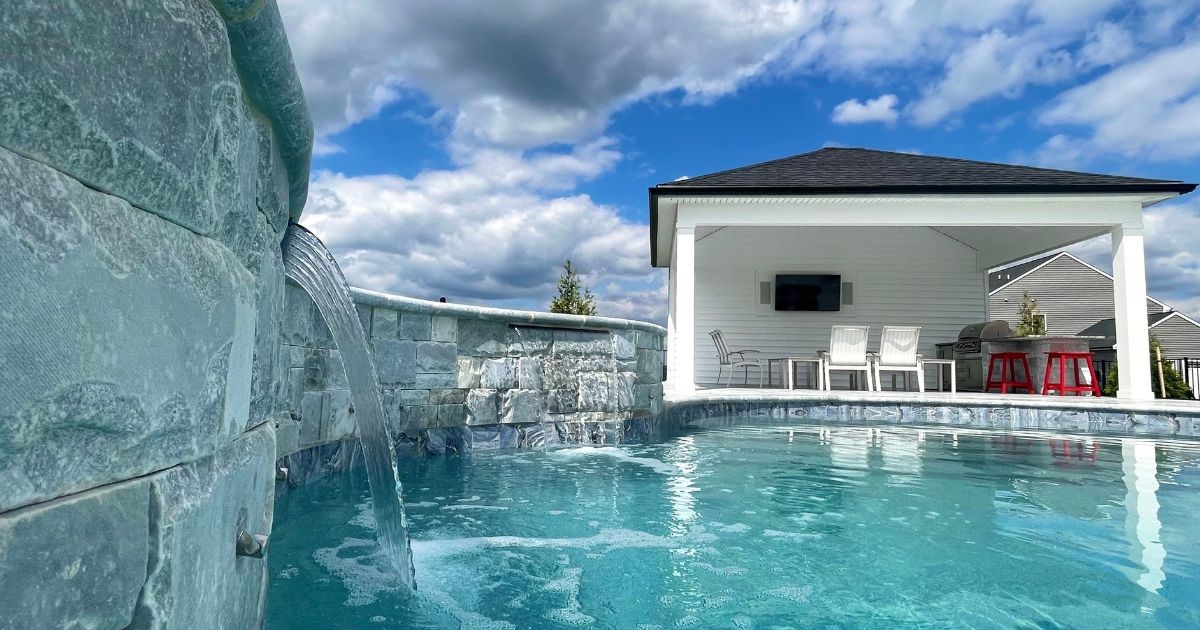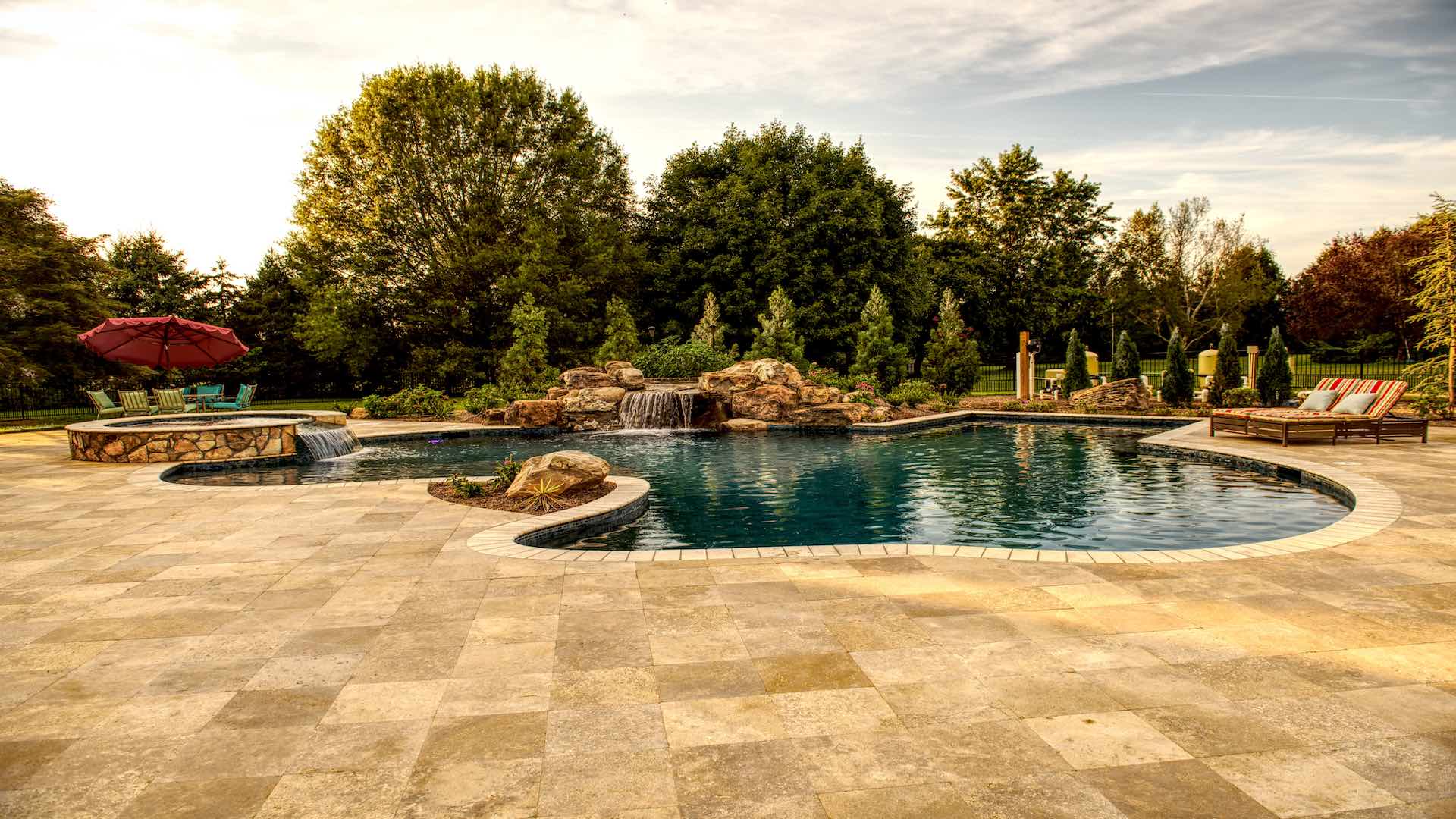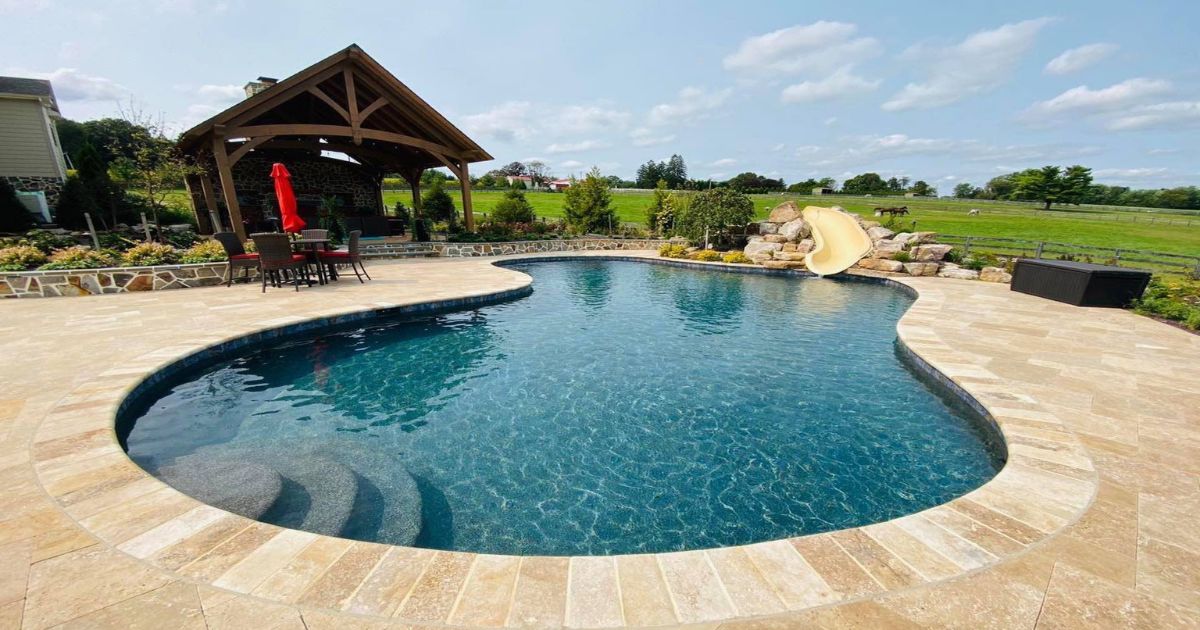If 2024 is the year you turn your backyard into a pool paradise with an…

Salt Water Pool vs Chlorine – Is One Better?
When it comes to pools, better is in the eye of the beholder. While one family may be content with an above ground pool, for another family, an inground pool is the only kind of pool they would consider. And then you get into a salt water pool vs chlorine pool decision. Before we get started, let’s dispel the myth that salt water pools don’t have chlorine. They do, they just make the chlorine from salt, rather than adding straight chlorine to the water.
Let’s Weigh the Pros and Cons
As in any decision, there are pros and cons for each choice. We discuss some of them here.
Initial Cost
Salt water pools may cost more up front than chlorine pools because they need what’s called a salt chlorine generator to turn salt into chlorine. But with a salt water pool, you’ll save money on other pool chemicals.
Maintenance Costs
Salt water pools need pool water testing more frequently than chlorine pools to ensure the chlorine level doesn’t get too high. Calcium buildup can happen more quickly as well. And with a salt water pool you have to monitor the chemical levels closely to prevent algae buildup. But regular pool maintenance is about the same. A good pool care company will know exactly what to do.
Chemicals
To some people, pool chlorine is very noticeable and irritating to their eyes, skin, and hair. In standard chlorine pools, the chemical is used in some pretty high concentrations, to keep bacteria levels down. With salt water pools, the electrolysis process turns salt into chlorine naturally, without all of the harsh side effects of chemical chlorine additives.
The Feel and Smell
Here, a salt water pool wins, hands down. Most people say that the water in a salt water pool feels silky smooth, like the ocean. Salt water pools also don’t put off that chlorine smell.
Salt Water Pool Conversion
If you have an existing chlorine pool, it’s pretty easy to convert it to a salt water pool. A salt chlorine generator is compatible with fiberglass pools, tiled concrete pools and vinyl pools that have polymer wall panels. Make sure your pool contractor has experience with salt water pool conversion. Ask them for references, and maybe swim in a salt water pool before making a final decision.
So there you have it. One sort of pool is not necessarily better than the other. It all depends on what you prefer, and what you want to pay for.




